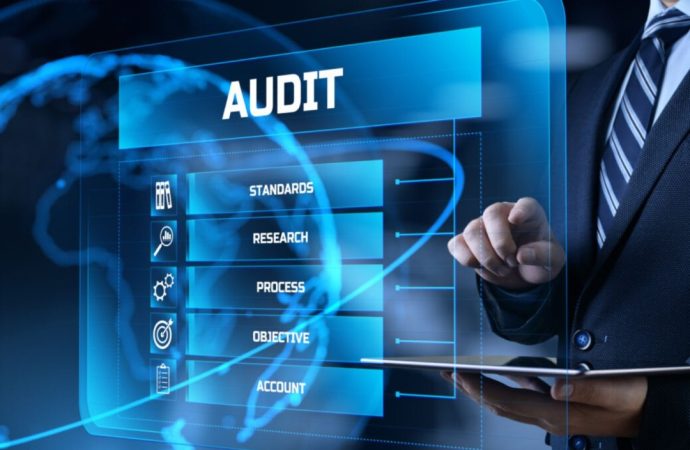Introduction: The audit landscape is undergoing a profound transformation, driven by the integration of emerging technologies into traditional audit practices. From artificial intelligence to blockchain and automation, these innovations are revolutionizing how audits are conducted, offering auditors unprecedented opportunities to enhance efficiency, accuracy, and insight. Join us as we delve into the impact of emerging
Introduction:
The audit landscape is undergoing a profound transformation, driven by the integration of emerging technologies into traditional audit practices. From artificial intelligence to blockchain and automation, these innovations are revolutionizing how audits are conducted, offering auditors unprecedented opportunities to enhance efficiency, accuracy, and insight. Join us as we delve into the impact of emerging technology on the audit landscape and explore the opportunities and challenges it presents for auditors and businesses alike.
1. Harnessing Artificial Intelligence for Advanced Analysis:
Artificial intelligence (AI) is empowering auditors with advanced analytical capabilities, enabling them to process vast amounts of data with speed and precision. AI algorithms can detect patterns, anomalies, and trends that human auditors may overlook, providing valuable insights into financial statements, transactions, and risk factors. By harnessing AI, auditors can enhance the depth and accuracy of their analysis, leading to more robust audit findings and recommendations for clients.
2. Revolutionizing Data Management with Blockchain:

Image by: https://media. licdn.com
Blockchain technology is revolutionizing data management in audits by providing a secure, immutable record of transactions. Auditors can leverage blockchain to verify the authenticity and integrity of financial data, ensuring transparency and trust in the audit process. Additionally, smart contracts and decentralized applications (DApps) powered by blockchain enable auditors to automate audit procedures, streamline workflow, and Revolutionizing Audits reduce the risk of fraud and error.
3. Streamlining Processes with Automation:
Automation is streamlining audit processes by automating repetitive tasks and workflows, allowing auditors to focus on high-value activities. Robotic process automation (RPA) tools can perform data collection, verification, and reconciliation tasks with speed and accuracy, reducing the time and resources required to conduct audits. By embracing automation, auditors can increase efficiency, minimize errors, and audit solutions powered by technology deliver timely audit reports to clients.
4. Enhancing Collaboration with Remote Audit Solutions:
Remote audit solutions powered by technology are enabling auditors to collaborate with clients and stakeholders seamlessly, regardless of geographic location. Cloud-based audit platforms facilitate real-time communication, document sharing, and collaboration, streamlining the audit process and reducing administrative burdens. Remote audit solutions also enhance flexibility and agility, allowing auditors to adapt to changing business environments and regulatory requirements.
5. Addressing Cybersecurity Risks and Data Privacy:
As audits increasingly rely on digital data and technology-driven processes, cybersecurity and data privacy have become critical concerns for auditors and businesses. Emerging technologies offer solutions to address these risks, including encryption, multi-factor authentication, and blockchain-based security protocols. By implementing robust cybersecurity measures and adhering to data privacy regulations, auditors can safeguard sensitive information and mitigate the risk of data breaches and cyber attacks.
Visual Table for Key Points:
| Key Aspect | Description |
|---|---|
| Data Analytics | Leveraging data analytics for enhanced insights and risk assessment |
| AI and Machine Learning | Automating processes and improving accuracy with AI and machine learning |
| Blockchain Technology | Enhancing transparency and security in auditing with blockchain technology |
| RPA | Streamlining audit procedures and reducing manual tasks with RPA |
| Continuous Auditing | Implementing real-time monitoring and risk assessment for continuous audits |
| Cybersecurity | Safeguarding audit integrity through robust cybersecurity measures |
| Cloud Computing | Facilitating remote auditing and collaboration with cloud computing solutions |
| Regulatory Compliance | Ensuring compliance with regulatory requirements through tech-driven solutions |
Comparative Table:
| Aspect | Traditional Auditing Practices | Tech-Driven Audit Innovations |
|---|---|---|
| Data Analytics | Limited utilization of data for audit insights | Leveraging data analytics for enhanced risk assessment |
| AI and Machine Learning | Manual processes with limited automation | Automating tasks and improving accuracy with AI and ML |
| Blockchain Technology | Centralized audit trails and limited transparency | Enhancing transparency and security with blockchain tech |
| RPA | Manual tasks prone to errors and inefficiencies | Streamlining procedures and reducing manual tasks with RPA |
| Continuous Auditing | Periodic audits with limited real-time monitoring | Implementing real-time monitoring and risk assessment |
| Cybersecurity | Basic cybersecurity measures | Robust cybersecurity measures to safeguard audit integrity |
| Cloud Computing | On-premises audit processes | Facilitating remote auditing and collaboration with cloud solutions |
| Regulatory Compliance | Manual compliance checks and reporting | Ensuring compliance through tech-driven solutions |
Conclusion:
In conclusion, emerging technologies are transforming the audit landscape, offering auditors unprecedented opportunities to enhance efficiency, accuracy, and insight in the audit process. From artificial intelligence and blockchain to automation and remote audit solutions, these innovations are revolutionizing traditional audit practices and empowering auditors to deliver greater value to clients and stakeholders. As auditors continue to embrace technology-driven audit solutions, the future of auditing promises to be more efficient, transparent, and effective than ever before.
















